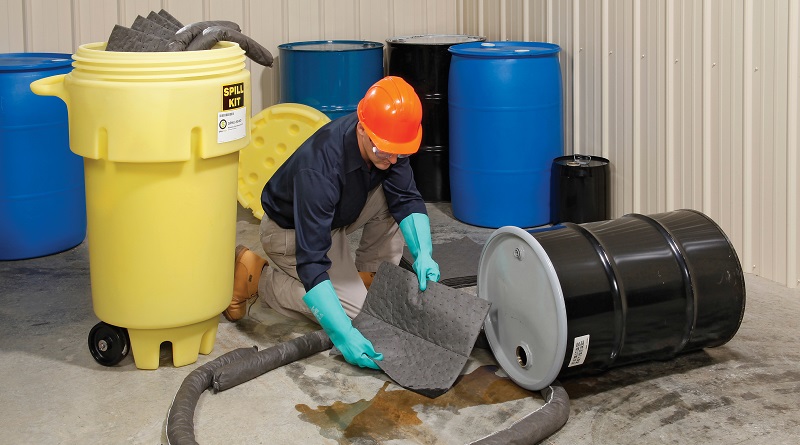How to Pick the Right Spill Control Supplies
Spill kits are an absolute must-have in industrial environments, as you never know where a hazardous spill of liquids may occur, so you want to be always prepared in case it does. Spills can be hazardous not only to the employees on site but your entire facility and the surrounding environment as well. And the Australian government has strict laws in place that prohibit improper disposal of contaminants and toxic waste that may come from a liquid spill.
The most common types of spills are fuels, lubricants, chemicals, and coolants, which is why spill control supplies are typically tailored to deal with them. If you don’t deal with a spill properly, not only are you risking legal charges, but you will also face huge losses in revenue as a result of the pause in production, the damaged equipment and hurt employees. That being said, it’s important that you have all the necessary spill control supplies to deal with any spill of liquids that may occur in your facility.

Spill kits contain absorbents, personal protective equipment and cleanup tools. They’re usually categorised by the type of spills they’re meant for. The three most popular types of spill kits include chemical spill kits, oil spill kits, and coolant spill kits. As their name implies, chemical spill kits are meant for absorbing and dealing with harmful chemicals. Oil spill kits are meant for dealing with oil-based liquids like lubricants and fuels, while coolant spill kits are meant for dealing with coolant-based spills.
The absorption materials include spill pads, spill socks, pillows, and loose absorbents. The personal protective equipment includes chemical splash gloves, resistant gloves made of nitrile or neoprene, boots with vinyl, plastic or rubber shoe covers and disposable coveralls, aprons or coats. All of these shouldn’t be used more than once and should be disposed of safely after they’ve been used to deal with a spill.
Lastly, the cleanup tools and materials include a dustpan, a plastic shovel or scoops that are usually made of polypropylene, a plastic brush or broom for solids, heavy-duty industrial waste-bags, a sealing tape, a cardboard box to hold the waste bags, a general cleaner or detergent for cleaning up, tongs or forceps for picking up sharp objects like glass and EHS hazardous waste labels.
Some items, like neutralizing agents for bases and acids, may also be mandatory for your workspace, as well as chemical-specific neutralizers like those for solvents, formaldehyde or mercury. Bleach can also be mandatory if there are biological agents used, and specialized supplies and additional PPE like chemical-resistant clothing or face shields may come in handy. With that said, your best bet is to assess the risks beforehand and know what you need before you actually need it.

